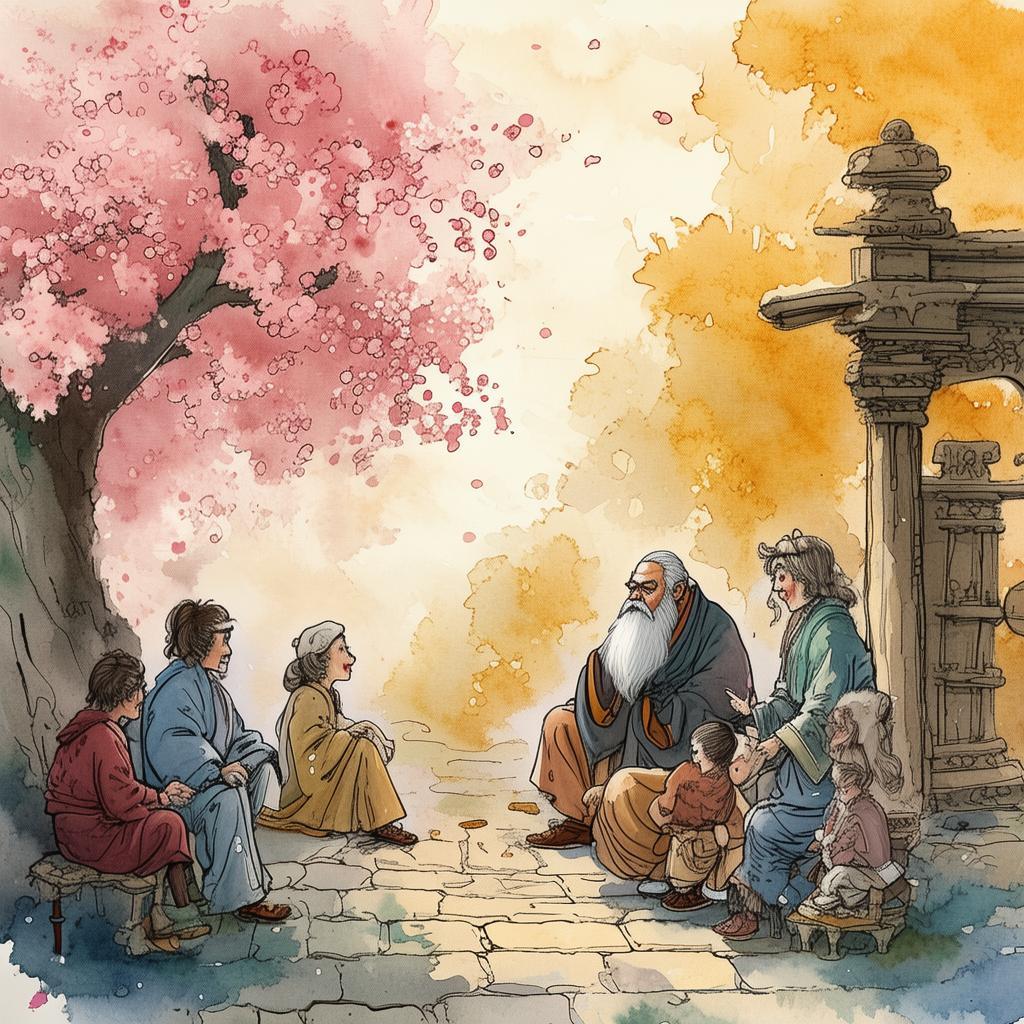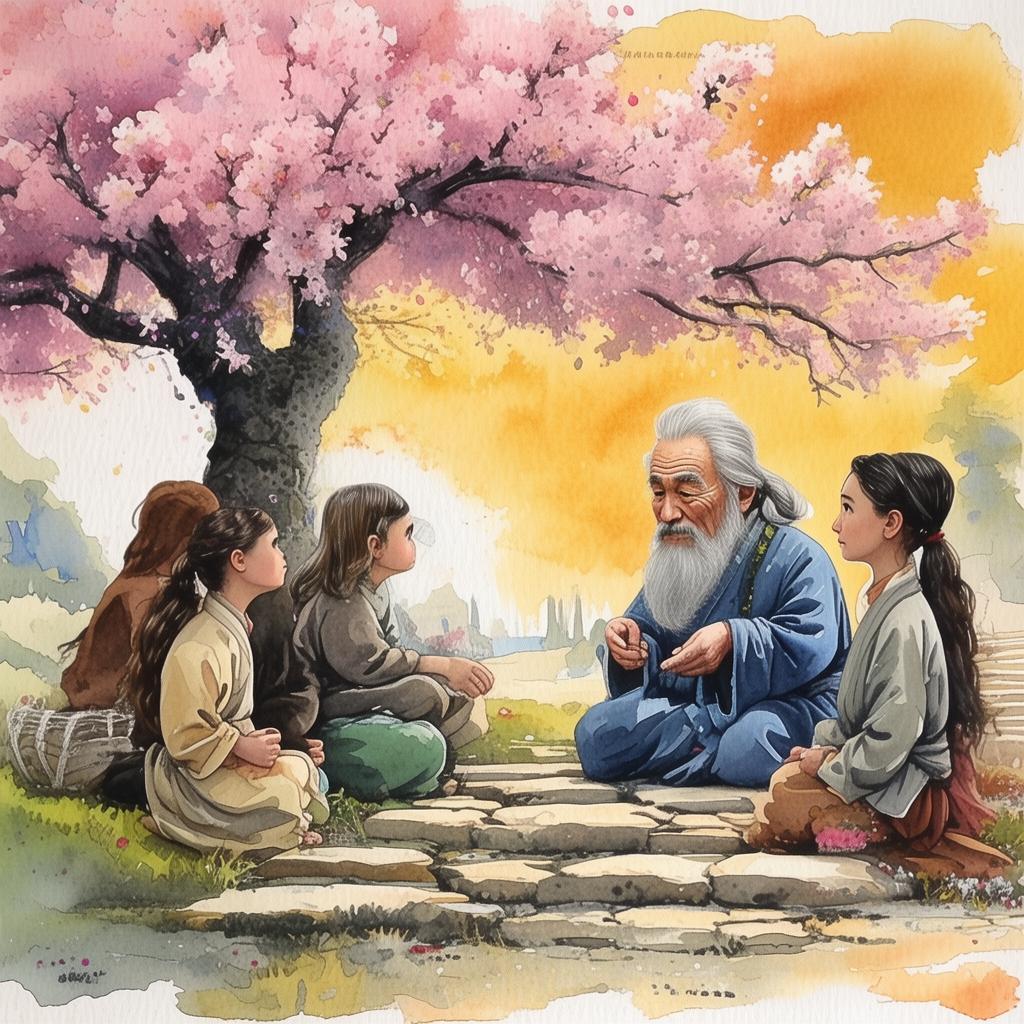Embracing the Silk: The Secret Love of the Harem
In the heart of the ancient Silk Road, where the desert kissed the mountains, there lay a palace of opulence and mystery. It was the harem of the Great Khan, a place where beauty and power intertwined, and love was a dangerous game. The story of the harem was one of love, war, and the ultimate betrayal, all wrapped in the silken threads of fate.
The Great Khan, known for his vast empire and his many concubines, had a secret. Among his harem, there was a woman named Aisha, whose beauty was matched only by her intelligence and cunning. She was not just a concubine; she was a strategist, a woman who knew the power of the silk that adorned the palace walls.
Aisha had a son, named Jalil, who was born of a forbidden love. His mother's beauty had caught the Khan's eye, but her spirit had captured his heart. Jalil grew up in the harem, surrounded by the scent of exotic spices and the sound of lutes, but he was never to be the Khan's heir. The throne was reserved for the sons of the Khan's first wife, a woman of royal blood.

As Jalil grew, so did his resentment. He watched as his mother was treated as a mere concubine, her beauty and intellect undervalued by the Khan. He longed for recognition, for the respect that his half-brothers enjoyed. But he also felt a deep love for his mother, a love that he knew could never be returned.
One day, a visitor arrived at the palace. She was a merchant, a woman of the Silk Road, and she brought with her a tale of a hidden treasure, a treasure that could change the fate of the Khan's empire. The Khan, intrigued, sent his most trusted advisor, a man named Raza, to investigate.
Raza, a man of many secrets, found the treasure, but he also discovered the truth about Jalil's birth. He saw the potential in the young man, a man who could unite the empire and bring peace to the harem. Raza, a man who had once loved Aisha, knew that he had to act.
He approached Jalil with a proposition. He would help Jalil claim the throne, but in return, Jalil had to promise to protect the harem and to ensure that Aisha's legacy would be honored. Jalil, seeing the chance to finally be recognized, agreed.
As the plot unfolded, the Khan grew suspicious. He saw Raza's closeness to Jalil and felt threatened. He ordered Raza's execution, but Raza managed to escape, taking Jalil with him. The Khan, in a fit of rage, ordered the harem to be burned to the ground, but Aisha, with her quick wit, managed to save her son and Raza.
The trio fled the palace, pursued by the Khan's guards. They traveled through the desert, facing drought and danger, but their love for each other and their shared dream of a united empire kept them going.
In the end, Jalil returned to the palace, not as a conqueror, but as a peacemaker. He forgave his half-brothers and ensured that Aisha's legacy would be honored. The harem was rebuilt, not as a place of power, but as a sanctuary for all women, regardless of their status.
The Khan, seeing the wisdom in Jalil's rule, stepped down, leaving the empire in the hands of a man who had once been a mere concubine's son. The Silk Road, once a place of war and intrigue, became a place of peace and prosperity, all thanks to the love and courage of Aisha, Jalil, and Raza.
The story of the harem was one of love that defied all odds, of a family that overcame war and betrayal, and of a legacy that would be woven into the very fabric of the empire. It was a tale that would be told for generations, a tale of the secret love of the harem, and the enduring power of the silk that adorned its walls.
✨ Original Statement ✨
All articles published on this website (including but not limited to text, images, videos, and other content) are original or authorized for reposting and are protected by relevant laws. Without the explicit written permission of this website, no individual or organization may copy, modify, repost, or use the content for commercial purposes.
If you need to quote or cooperate, please contact this site for authorization. We reserve the right to pursue legal responsibility for any unauthorized use.
Hereby declared.









